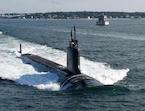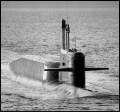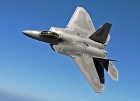Mgellis
Posts: 2054
Joined: 8/18/2007
Status: offline

|
One more option for a limited nuclear scenario, depending on your definition of a limited nuclear scenario...
Previous to 1960, there were virtually no ICBMs. The U.S. deployed a few Atlas D missiles in 1959, but the Soviets did not have a deployed ICBM until 1961. A few experimental missiles might be available at any time, of course, but one can assume that before 1960, at least 95% of the attacks would take place using bombers.
In addition, the number of warheads before 1960 is...okay, it's not good, but it's nothing like it was in the 1980s. In 1955, the Soviets had 200 warheads. In 1960, they had 1,600. (See http://rense.com/general47/global.htm for details.) By comparison, the U.S. had 3,000 in 1955 and about 20,000 in 1960. The Soviets are definitely outgunned, so a scenario would focus more on avoiding a "draw"--the odds of the Soviets winning in, say, 1958 would be very slim but they might do enough damage to the U.S. and Europe that both NATO and the Warsaw Pact would be totally crippled, with hundreds of millions of people dead on both sides, economies utterly destroyed, etc.
By the way, nuclear winter is definitely not a good thing, but the 1815 eruption of Mt. Tambora was estimated at 800 megatons (see http://en.wikipedia.org/wiki/1815_eruption_of_Mount_Tambora for details), so assuming even 1,000 one-megaton warheads went off, there would probably be some climate change for a couple of years, and it would probably be very bad for agriculture and the global economy and so on, but it would probably not be the actual end of the world.
So, in other words, any NATO-Soviet Union conflict set before 1960 could be "limited" in the sense that only a few hundred warheads might be involved, and because they were being delivered by bombers, a large number of these might be stopped. We're still almost certainly talking about one of the worst disasters in human history, tens of millions of people dead at least and tens of millions more injured and displaced, but that's "only" about the same number as World War II. Humanity has survived much worse. It would seem apocalyptic, of course, because it would all happen in seven hours instead of seven years.
|
 Printable Version
Printable Version












 New Messages
New Messages No New Messages
No New Messages Hot Topic w/ New Messages
Hot Topic w/ New Messages Hot Topic w/o New Messages
Hot Topic w/o New Messages Locked w/ New Messages
Locked w/ New Messages Locked w/o New Messages
Locked w/o New Messages Post New Thread
Post New Thread